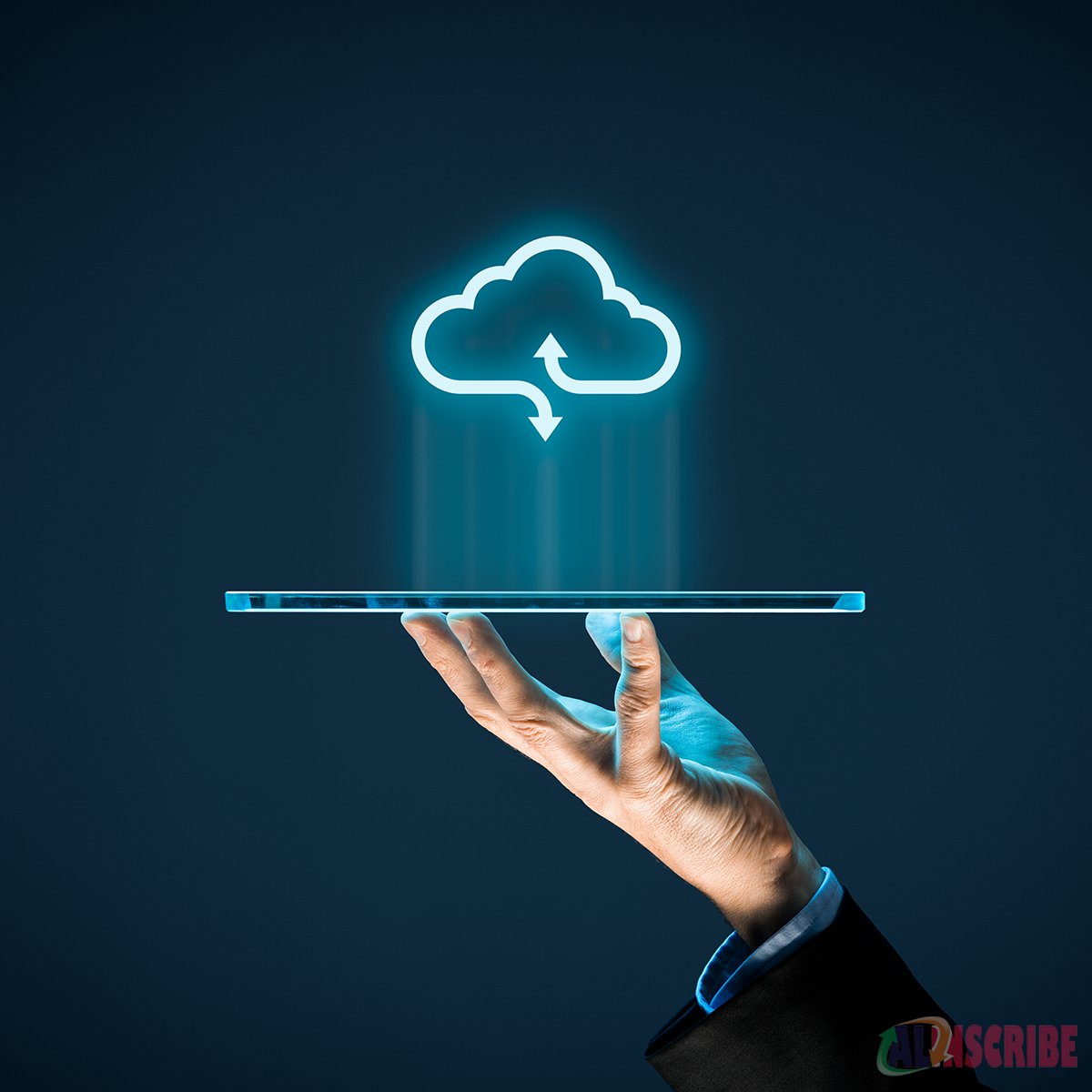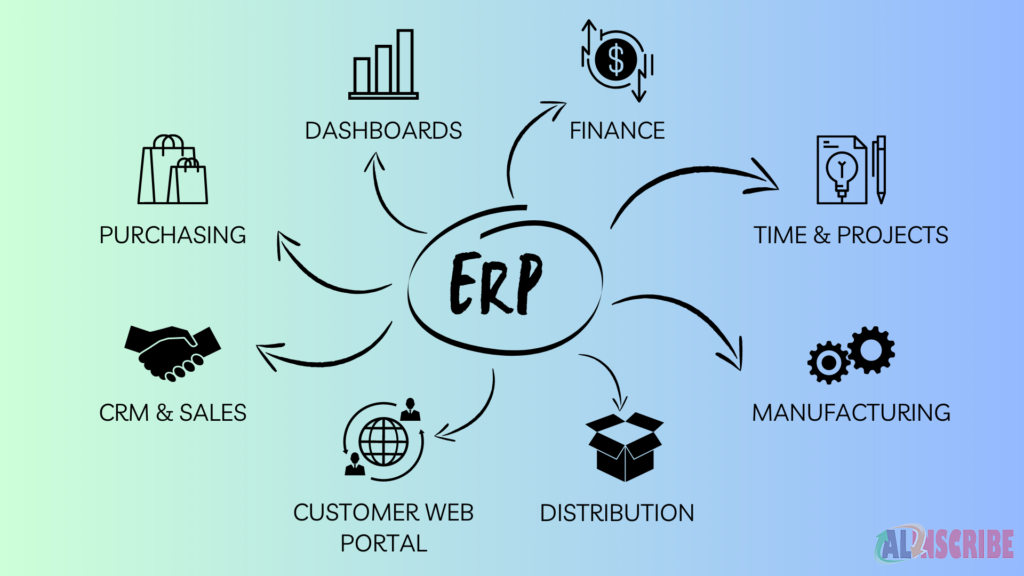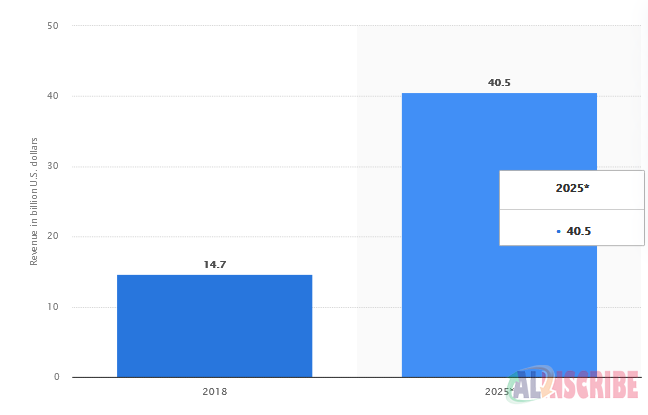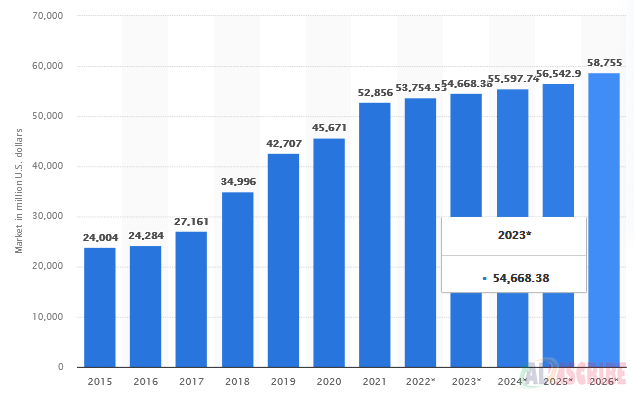What Is Cloud ERP CRM And How Does It Work?

In the fast-paced and ever-evolving landscape of business, organizations are constantly seeking ways to enhance efficiency, streamline processes, and build stronger relationships with customers. One of the transformative technologies that has emerged to address these needs is Cloud ERP CRM.
In this article, we will delve into the intricacies of Cloud ERP CRM, exploring what it is, its key components, and how it works to revolutionize business operations.
Unraveling the Acronyms: ERP and CRM
Before diving into the cloud aspect, it's essential to grasp the fundamentals of ERP and CRM individually.
Enterprise Resource Planning (ERP)
ERP, Enterprise Resource Planning, is a comprehensive software solution designed to integrate and manage core business processes, such as finance, human resources, supply chain, and manufacturing. The goal of ERP is to provide a unified platform that enables real-time visibility into various facets of an organization, fostering better decision-making and operational efficiency.
Customer Relationship Management (CRM)
CRM, Customer Relationship Management, on the other hand, focuses specifically on managing and nurturing customer relationships. It centralizes customer data, interactions, and transactions, empowering businesses to understand their customers better, anticipate their needs, and deliver personalized experiences.
The Marriage of Cloud Technology with ERP and CRM
The cloud revolution has had a profound impact on how businesses deploy and utilize software applications. Cloud-based solutions, including Cloud ERP CRM, leverage the power of the internet to deliver software as a service (SaaS). This means that instead of hosting applications on local servers, businesses can access and use them over the internet.
Key Advantages of Cloud-Based Solutions:
Accessibility
Cloud solutions can be accessed from anywhere with an internet connection, providing unparalleled flexibility for businesses with distributed teams or those embracing remote work.
Scalability
Cloud services offer scalability, allowing organizations to scale up or down based on their needs without the need for significant infrastructure investments.
Cost-Efficiency
Cloud-based models often operate on a subscription-based payment structure, reducing upfront costs and minimizing the need for dedicated IT infrastructure.
Automatic Updates
Software updates and patches are managed by the service provider, ensuring that businesses always have access to the latest features and security enhancements.
Understanding Cloud ERP CRM
Cloud ERP CRM represents a convergence of ERP and CRM functionalities in a cloud-based environment, creating a unified and cohesive system that spans the entire business ecosystem.

Components of Cloud ERP CRM
ERP Modules
Finance: Manages financial processes such as accounting, budgeting, and payroll.
Supply Chain Management: Coordinates the flow of goods and services from supplier to customer.
Human Resources: Handles employee-related processes, including payroll, recruitment, and performance management.
CRM Modules
Sales Automation: Streamlines sales processes, from lead generation to deal closure.
Marketing Automation: Enables targeted marketing campaigns and tracks customer interactions.
Customer Service: Manages customer inquiries, complaints, and support requests.
Integration of ERP and CRM
In a Cloud ERP CRM system, ERP and CRM modules seamlessly integrate to share crucial business data. For instance, when a sales representative closes a deal in the CRM system, the financial implications of that deal are automatically reflected in the ERP system. This integration eliminates data silos, fostering a holistic view of business operations.
How Cloud ERP CRM Works
Data Centralization
Customer data, transaction details, and other critical information are centralized in a cloud-based repository. This ensures that all departments have access to a single, up-to-date version of the truth.
Real-Time Collaboration
Cloud ERP CRM facilitates real-time collaboration among different business functions. For example, the sales team can collaborate with the finance team to ensure accurate and timely invoicing.
Automation of Workflows
Workflows, such as order processing or lead nurturing, can be automated, reducing manual effort and minimizing the risk of errors.
Analytics and Reporting
Advanced analytics tools provide insights into various aspects of the business, empowering decision-makers with actionable intelligence.
Customization and Scalability
Cloud ERP CRM solutions are often highly customizable, allowing businesses to tailor the system to their unique needs. Additionally, the scalability of cloud solutions ensures that the system can grow alongside the business.
How your company can improve by implementing a cloud ERP and CRM system
Before Implementation
Data Silos: Departments operate in isolation, leading to data silos and inefficiencies.
Limited Visibility: Lack of real-time data visibility hinders decision-making.
Manual Processes: Many processes, including order processing and inventory management, are manual and time-consuming.
Inconsistent Customer Experience: Inconsistent data across departments result in a less-than-optimal customer experience.
After Implementation
Unified Platform: Cloud ERP CRM integrates all business functions into a single platform, breaking down data silos.
Real-Time Insights: Decision-makers have access to real-time data, enabling quicker and more informed decisions.
Automation of Processes: Manual processes are automated, reducing errors and improving efficiency.
Enhanced Customer Experience: With a 360-degree view of customers, your company can provide more personalized and responsive services.
Overcoming Challenges in Cloud ERP CRM Implementation
While the benefits of Cloud ERP CRM are evident, successful implementation requires careful planning and consideration of potential challenges.
Data Migration
Transferring data from legacy systems to the cloud can be complex. Proper data cleansing and migration strategies are crucial.
Change Management
Employees may resist changes to established workflows. Adequate training and change management programs are essential to ensure a smooth transition.
Security Concerns
As data is stored off-site, security becomes a paramount concern. Choosing reputable cloud service providers with robust security measures is imperative.
Integration Issues
Ensuring seamless integration between ERP and CRM modules is vital. Compatibility between different software versions and regular updates must be addressed.
The Future of Cloud ERP CRM
As technology continues to advance, the future of Cloud ERP CRM holds exciting possibilities. Here are some trends shaping the trajectory of integrated business solutions:
Artificial Intelligence (AI) and Machine Learning (ML)
Integration of AI and ML algorithms for predictive analytics, enhancing the ability to forecast customer behavior and optimize business processes.
IoT Integration
Connecting IoT devices to Cloud ERP CRM systems for real-time monitoring of assets, inventory, and supply chain processes.
Blockchain Technology
Utilizing blockchain for secure and transparent transaction recording, particularly in finance and supply chain management.
Enhanced Mobile Capabilities
Continued emphasis on mobile accessibility, allowing users to access Cloud ERP CRM systems on various devices.
ERP & CRM statistics

The above picture depicts the massive shift in the revenue generation of ERP industry. In 2018 the generated revenue was $14.7 billion, which is estimated to reach $40.5 billion within the year of 2025. The impressive shift is something to look forward to.

Just as the above picture depicts the increase in revenue generation of CRM systems in the global market. As it can be seen in the picture the revenue generation of the global CRM market is expected to reach to $58,755 billion mark in 2026, which tells of the potential that the CRM systems have.
11 best ERP and CRM systems in market
In the dynamic landscape of business management, Enterprise Resource Planning (ERP) and Customer Relationship Management (CRM) software play pivotal roles in streamlining operations and fostering stronger connections with customers. The market is flooded with various solutions, each offering unique features and functionalities. In this guide, we will explore the 11 best ERP and CRM software solutions that stand out in the industry.
1. SAP S/4HANA
SAP S/4HANA is a comprehensive ERP suite that integrates with advanced analytics and Artificial Intelligence (AI). It is designed to simplify business processes and enhance decision-making.
Key Features:
- Real-time analytics and insights.
- Centralized data management for streamlined operations.
- Improved user experience with a modern and intuitive interface.
- Cloud and on-premise deployment options.
2. Oracle NetSuite
NetSuite, acquired by Oracle, is a cloud-based ERP solution catering to businesses of all sizes. It offers modules for ERP, CRM, and e-commerce, providing a unified platform for managing various business functions.
Key Features:
- Cloud-based, scalable solution.
- Integrated CRM for a 360-degree view of customers.
- Advanced financial management capabilities.
- SuiteCommerce module for e-commerce operations.
3. Microsoft Dynamics 365
Microsoft Dynamics 365 combines ERP and CRM functionalities in a modular, cloud-based platform. It is known for its flexibility, allowing businesses to choose and pay for only the features they need.
Key Features:
- Seamless integration with Microsoft Office 365.
- Unified platform for ERP and CRM.
- AI-driven insights for data-driven decisions.
- Scalable and customizable to fit diverse business needs.
4. Tactic ERP & CRM
Tactic ERP & CRM is a cloud-based SaaS that boasts both ERP and CRM features within one platform. The best thing about Tactic is that it has unmatched flexibility and can be used by any industry, any company regardless of their sizes.
Key features:
- Seamless contract management
- Easy third-party application integration
- Innovative knowledge management feature
- BOM and MO management for manufacturing companies
- Integrated Electronic Content Management
- Inbuilt Point of Sale (POS)
Tactic ERP & CRM has much more to offer than what's shown on the surface. If you want to gain first hand experience of using the software then you can check out Tactic Demo and know for yourself.
5. Salesforce
Salesforce is a cloud-based CRM solution renowned for its focus on customer relationship management. It offers a wide range of tools to streamline sales, marketing, and customer service processes.
Key Features:
- Robust CRM capabilities.
- Automation of sales processes.
- AppExchange for extending functionality.
- Community Cloud for enhanced collaboration.
6. Epicor ERP
Epicor ERP is tailored for manufacturing, distribution, retail, and service industries. It aims to enhance visibility into various business processes and drive operational efficiency.
Key Features:
- Industry-specific functionality.
- Comprehensive supply chain management.
- Human Capital Management (HCM) module for workforce optimization.
- Analytics for data-driven decision-making.
7. Infor CloudSuite
Infor CloudSuite is a cloud-based ERP solution that spans industries such as manufacturing, healthcare, and retail. It focuses on delivering industry-specific functionality to meet unique business requirements.
Key Features:
- Specialized solutions for various industries.
- User-friendly interface.
- Scalable cloud deployment.
- AI-driven insights for better decision-making.
8. Zoho ERP
Zoho ERP is a suite of business applications that include ERP, CRM, and other tools for collaboration and productivity. It is known for its affordability and ease of use, making it suitable for small to medium-sized businesses.
Key Features:
- Modular approach for customizable solutions.
- Affordable pricing.
- Collaboration tools for enhanced teamwork.
- Integration with other Zoho applications.
9. Sage Intacct
Sage Intacct is a cloud-based financial management solution that offers advanced accounting and financial reporting capabilities. It is particularly suitable for growing businesses looking for a scalable solution.
Key Features:
- Cloud-based financial management.
- Automation of financial processes.
- Robust reporting and analytics.
- Integration with other business applications.
10. SYSPRO ERP
SYSPRO is an ERP solution designed for manufacturers and distributors. It focuses on providing tools for effective supply chain management, production planning, and financial control.
Key Features:
- Industry-specific functionality for manufacturing and distribution.
- Advanced supply chain management.
- Financial management and reporting.
- Customizable to meet unique business needs.
11. Acumatica Cloud ERP
Acumatica is a cloud-based ERP solution known for its flexibility and scalability. It caters to a wide range of industries and allows businesses to adapt the system to their specific needs.
Key Features:
- Cloud-based, scalable solution.
- Adaptable to various industries.
- Integration with popular business applications.
- User-friendly interface for ease of use.
How to Choose the Right ERP and CRM Software:
Selecting the right ERP and CRM software is a critical decision that requires careful consideration of various factors. Here are key considerations to guide your decision-making process:
Business Needs
Identify the specific needs of your business, considering both current requirements and future growth.
Scalability
Choose a solution that can grow with your business. Scalability is crucial to accommodate expansion and evolving business processes.
Integration Capabilities
Ensure that the chosen software can seamlessly integrate with other essential tools and applications used in your business.
User-Friendliness
The software should have an intuitive interface to facilitate user adoption and minimize the learning curve.
Cloud vs. On-Premises
Decide whether a cloud-based or on-premise solution aligns better with your organization's preferences and requirements.
Industry Focus
Some solutions are designed with specific industries in mind. Consider whether the software caters to the unique needs of your industry.
Cost Considerations
Evaluate the total cost of ownership, including licensing fees, implementation costs, and ongoing maintenance expenses.
Support and Training
Assess the level of support and training offered by the software provider to ensure a smooth implementation process.
Conclusion
In conclusion, Cloud ERP CRM represents a transformative paradigm in the world of business management. By integrating ERP and CRM functionalities in a cloud-based environment, organizations can break down silos, enhance collaboration, and deliver a seamless experience to both internal stakeholders and customers.
Article Comments
Similar Articles
Articles Search
Sponsor
There are zero sub-categories in this parent category.
There are zero sub-categories in this parent category.
There are zero sub-categories in this parent category.
















